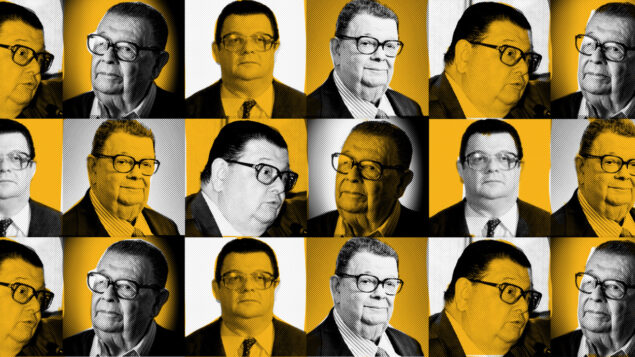The Political Dynamics of Delfim Netto, Lula, and Dilma Rousseff
A Retrospective on Power and Influence in Brazilian Politics
In the complex arena of Brazilian politics, relationships and alliances can make or break careers. One such tale entwines Delfim Netto, Luiz Inácio Lula da Silva, and Dilma Rousseff. Each figure represents different epochs and ideologies, yet their interactions have significantly impacted Brazil’s economic and political landscape.
Delfim Netto’s Political Evolution and Alliance with Lula
Highly influential, Delfim Netto managed Brazil’s economy as Minister of Finance (1967-1974) and Planning (1979-1985) during the military dictatorship. His expertise and networks granted him a continuous political presence, leading to his election as a federal deputy in 1986. Representing the ruling party of the military regime, his longevity in office was evident as he was repeatedly re-elected until 2002.
By 2005, Delfim’s political allegiance shifted when he joined the PMDB, guided by Michel Temer. This move signified his growing proximity to Lula, Brazil’s then-President. Despite the ideological shift from his past, Delfim saw potential in Lula’s administration and became a trusted advisor. Lula valued Delfim’s insights, engaging with him weekly and seeking his counsel during key economic discussions.
However, the alliance with Lula came at a cost. In the 2006 elections, Delfim met his first electoral defeat since 1986, securing only 38,035 votes. The tight association with the PT government alienated a portion of his traditional voter base. The PMDB’s overall poor performance in São Paulo further compounded this loss. Recognizing the political shift, Delfim acknowledged the end of his electoral journey, although his influence continued through behind-the-scenes advisory roles.
The Rise of Dilma Rousseff and Internal Conflicts
As Lula’s tenure progressed, internal conflicts emerged, particularly over economic policies. Dilma Rousseff, then Minister of Mines and Energy, was a vocal critic of the economic strategies led by Antonio Palocci, the Minister of Finance. Critics like Rousseff argued against high interest rates, overvalued currency, and stringent fiscal policies, branding them extensions of previous neoliberal agendas.
Delfim Netto, a proponent of the ongoing economic measures, coined the term “fogo amigo” (friendly fire) to describe Rousseff’s internal opposition. Despite his frustrations, Delfim refrained from criticizing Rousseff directly to Lula.
Amid political turbulence spurred by the mensalão scandal in 2005, Delfim maneuvered in Congress to protect Palocci’s policies. He brokered agreements with opposition leaders, advocating for fiscal measures to maintain economic stability. Despite his efforts, Palocci was eventually replaced by Guido Mantega in 2006, under Rousseff’s growing influence.
Strategic Shifts and Consequences
The reshuffling within Lula’s team sparked concerns over potential economic shifts. Mantega, previously critical of neoliberal policies, was expected to maintain continuity. However, under Rousseff’s chief of staff tenure, conflicting visions persisted.
Rousseff’s "Program for Accelerated Growth" (PAC) introduced in 2007 marked a new phase. Mantega evolved into a critic of the Central Bank’s interest rate policies, urging changes. This push culminated in a significant 2008 meeting with prominent economic figures, including Delfim Netto, debating radical policy shifts.
Bankers and economic stakeholders, alarmed by threats to the existing successful framework, pressured rating agencies to grant Brazil investment grade status, reinforcing the current policies. Consequently, the proposed drastic changes were postponed, preserving the economic approach that drove Lula’s administration.
Legacy and Lessons
Delfim Netto’s political career and advisory role highlight the intricate balance of experience, influence, and adaptability in Brazil’s political sphere. His alliance with Lula, despite the electoral setback, underscored the nuanced shifts from ideological rigidity to pragmatic governance.
The complex interplay between Lula and Rousseff, marked by conflicting economic ideologies, serves as a testament to the dynamic nature of political power. While Lula ensured economic stability through strategic alliances and policies, Rousseff’s tenure reflected ongoing debates about Brazil’s economic path and governance.
As history unfolds, the legacies of Delfim Netto, Lula, and Dilma Rousseff remain pivotal in understanding Brazil’s journey through political and economic transformations.
For more information on political figures and their influence, visit the official website of the PMDB.
